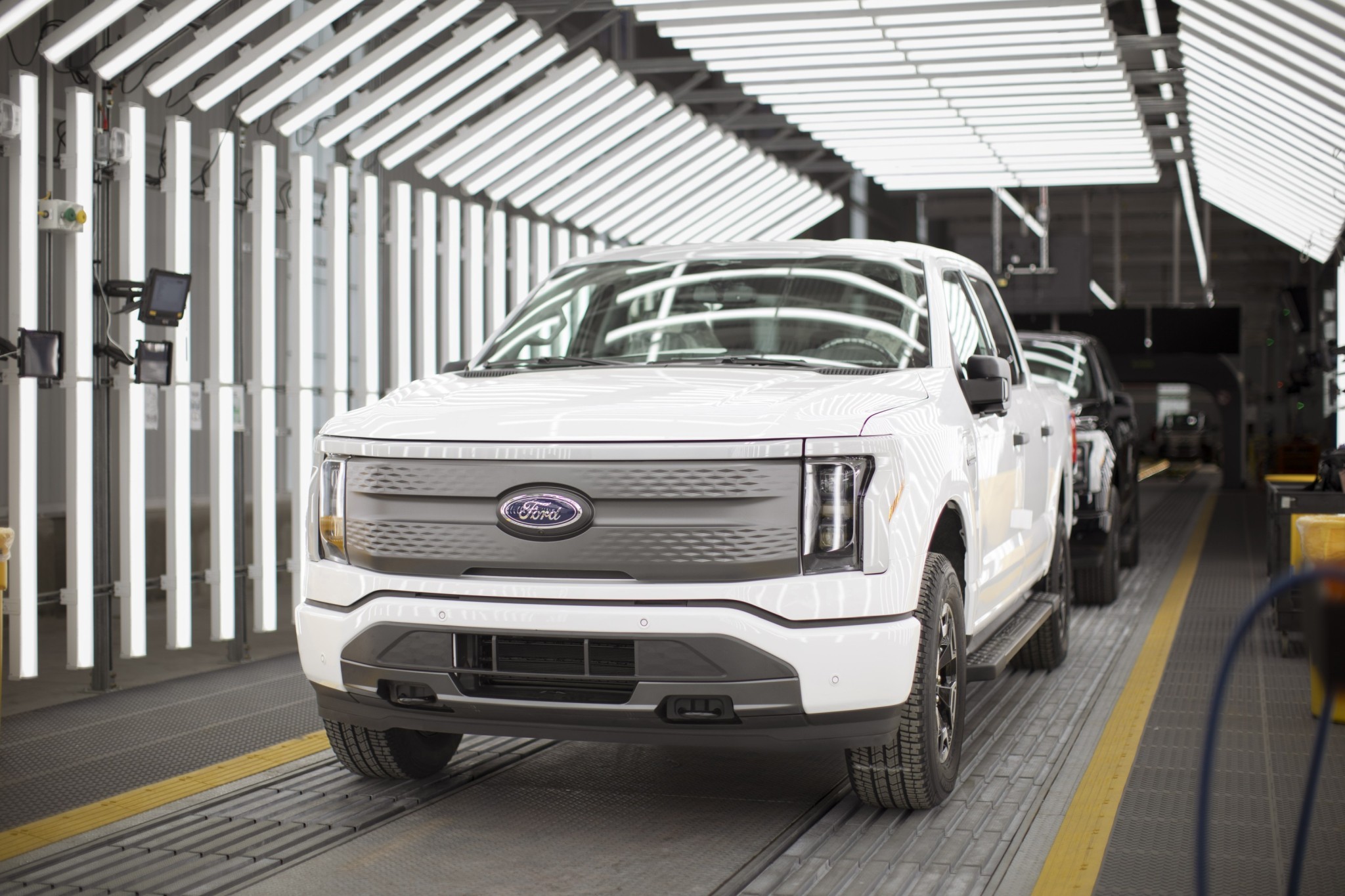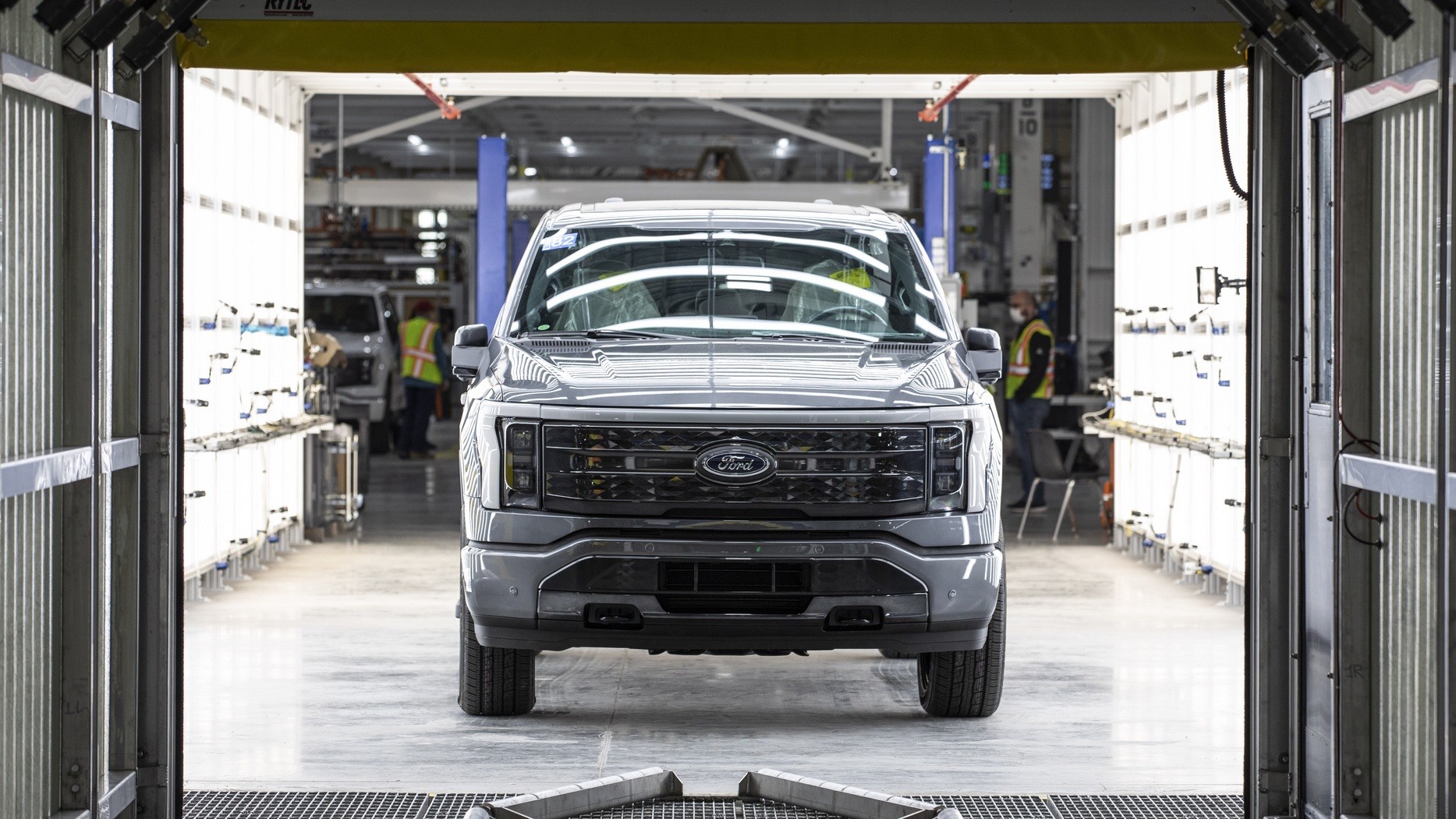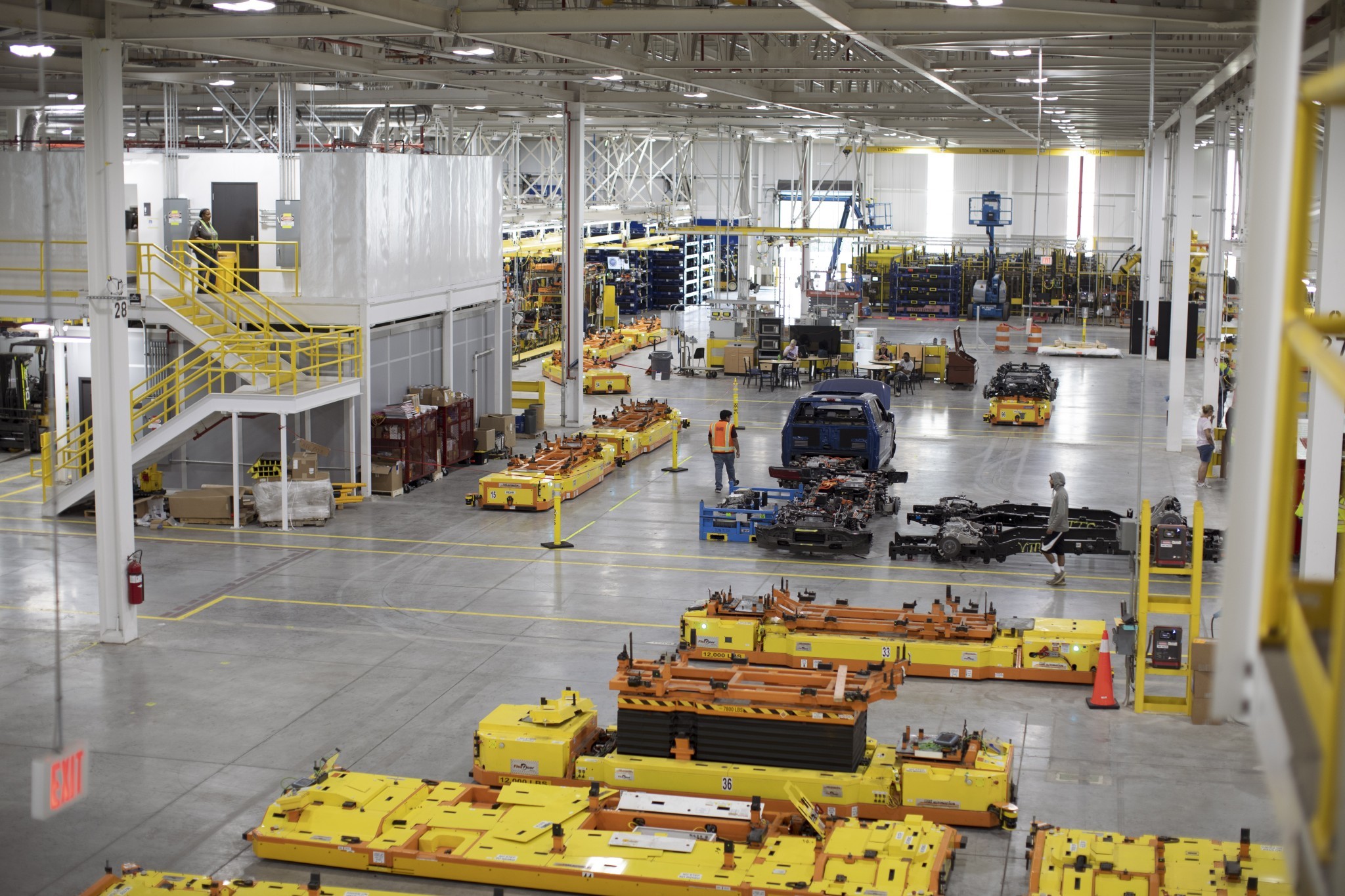The electric vehicle world is undergoing a dramatic shift, with traditional automakers like Ford facing significant challenges. The once-promising F-150 Lightning envisioned as a modern icon, has become a symbol of the industry’s struggles.
Overstocked dealerships and waning demand have compelled Ford to halt production at its Dearborn plant, a stark indication of the complexities and uncertainties in the burgeoning EV market.

Ford’s decision to pause production underscores the broader challenges facing traditional automakers as they transition to electric vehicles.
Despite substantial investments and ambitious plans, many have struggled to match the pace and innovation of Tesla. Factors such as high production costs, limited charging infrastructure, and consumer concerns about range anxiety have hindered widespread adoption.
While some automakers, like General Motors, have made strides with more affordable EV offerings, Ford’s experience with the F-150 Lightning highlights the risks associated with aggressive EV strategies.

The company’s decision to scale back production and focus on profitability reflects a growing recognition that the path to EV dominance is fraught with obstacles.
As the industry continues to evolve, it remains to be seen whether traditional automakers can successfully go through these challenges and establish a strong foothold in the electric future.

